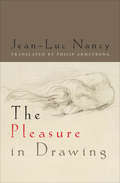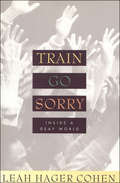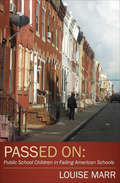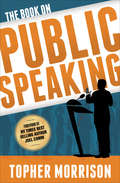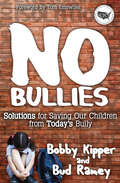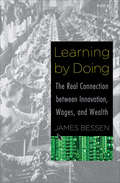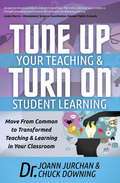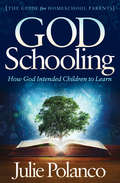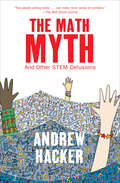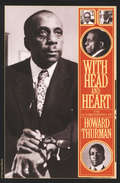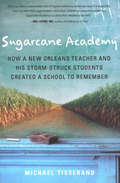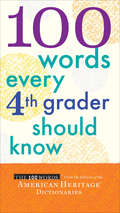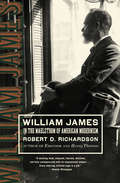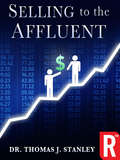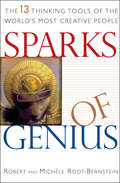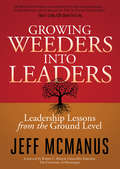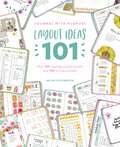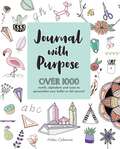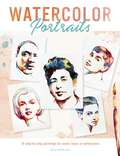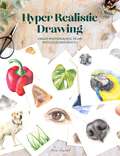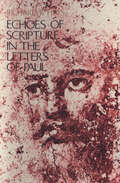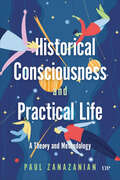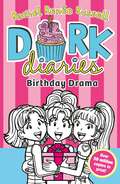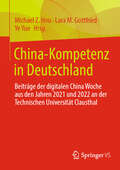- Table View
- List View
The Pleasure in Drawing
by Jean-Luc NancyThe renowned philosopher contemplates the medium of drawing in &“a book full of dazzling insights, imaginative curves and provocative renewals&” (Sarah Clift, University of King&’s College). In 2007, philosopher Jean-Luc Nancy curated an exhibition at the Museum of Fine Arts in Lyon. This book, originally written for that exhibition, explores the interplay between drawing and form—viewing the act of drawing as a formative force. Recalling that the terms &‘drawing&’ and &‘design&’ were once used interchangeably, Nancy notes that drawing designates a design that remains without project, plan, or intention. His argument offers a way of rethinking a number of historical terms (sketch, draft, outline, plan, mark, notation), which includes rethinking drawing in its graphic, filmic, choreographic, poetic, melodic, and rhythmic senses. For Nancy, drawing resists any kind of closure, and therefore never resolves a tension specific to itself. Drawing allows the gesture of a desire that remains in excess of all knowledge to come to appearance. Situating drawing in these terms, Nancy engages a number of texts in which Freud addresses the force of desire in the rapport between aesthetic and sexual pleasure, texts that also turn around questions concerning form in its formation. Between sections of his text, Nancy includes a series of &“sketchbooks&” on drawing, composed of quotations on art from different writers, artists, or philosophers.
Train Go Sorry: Inside a Deaf World
by Leah Hager CohenA &“remarkable and insightful&” look inside a New York City school for the deaf, blending memoir and history (The New York Times Book Review). Leah Hager Cohen is part of the hearing world, but grew up among the deaf community. Her Russian-born grandfather had been deaf—a fact hidden by his parents as they took him through Ellis Island—and her father served as superintendent at the Lexington School for the Deaf in Queens. Young Leah was in the minority, surrounded by deaf culture, and sometimes felt like she was missing the boat—or in the American Sign Language term, &“train go sorry.&” Here, the award-winning writer looks back on this experience and also explores a pivotal moment in deaf history, when scientific advances and cultural attitudes began to shift and collide—in a unique mix of journalistic reporting and personal memoir that is &“a must-read&” (Chicago Sun-Times). &“The history of the Lexington School for the Deaf, the oldest school of its kind in the nation, comes alive with Cohen&’s vivid descriptions of its students and administrators. The author, who grew up at the school, follows the real-life events of Sofia, a Russian immigrant, and James, a member of a poor family in the Bronx, as well as members of her own family both past and present who are intimately associated with the school. Cohen takes special pride in representing the views of the deaf community—which are sometimes strongly divided—in such issues as American Sign Language (ASL) vs. oralism, hearing aids vs. cochlear implants, and mainstreaming vs. special education. The author&’s lively narrative includes numerous conversations translated from ASL . . . a one-of-a-kind book.&” —Library Journal &“Throughout the book, Cohen focuses on two students whose Russian and African American roots exemplify the school&’s increasingly diverse population . . . beautifully written.&” —Booklist
Passed On: Public School Children in Failing American Schools
by Louise MarrA teacher reveals how current education policy is failing our kids through stories of her own students in the public schools of Philadelphia.Since the passing of the No Child Left Behind Act in 2001, American schools have emphasized test scores to measure school performance—forcing educators to “teach to the test.” Though teachers have fought to get rid of this detrimental trend, many corporate reformers turn a blind eye to the real problems teachers face today: classrooms filled with pregnant teens and children who cannot read beyond the third grade; violent neighborhood schools that are dangerously underfunded and underprepared to deal with their daily heartaches.Passed On presents an honest and intimate portrait of the classroom experience in America’s failing school. Through stories of her own students in Philadelphia—where violent crime is common and the poverty rate is high—Louise Marr reveals how the current corporate reform movement misunderstands what teachers and students need to succeed. Marr outlines the real problems in the schools today, offering a much-needed frontline perspective in the current school reform debates.
The Book on Public Speaking
by Topher Morrison&“One of the most powerful professional speakers in America . . . reveals how he&’s earned millions onstage, on camera and in business&” (Steve Siebold, CSP, past chairman of The National Speakers Association&’s Million Dollar Speakers Group). If you look at the trends of over thirty years ago in fashion, technology, architecture, and any other industry, what was cutting edge back then has become cliché and grossly out of date now. But in the speaking industry, most people get up and still walk, talk, and sound like the 1980s motivational speakers of yesteryear. The Book on Public Speaking takes a head-on approach and challenges the status quo for business leaders that speak in front of their staff, board of directors, and the public. After reading this book you will be privy to the most current methods for speaking to an audience for maximum impact in today&’s more sophisticated and skeptical culture. If you are the type of business leader who has achieved a level of success in life and feel compelled to share your story with the world, don&’t lessen that impact by imitating outdated speaking techniques. Instead, break the mold of the speaker cliché and tap into a speaking style that is authentic, packs a punch, and leaves the audience wanting more. &“I learned some amazing presentation techniques from Topher. I&’m using them right now. They&’re awesome. You can&’t tell because you&’re reading this.&” —John Heffron, winner of The Last Comic Standing &“Morrison is crazy good at training you how to communicate on-camera so that your business gets more attention.&” —James Lavers, professional speaker, founder, &“Selling from the Screen&”
No Bullies: Solutions for Saving Our Children from Today's Bully
by Bobby Kipper Bud RameyPractical solutions to stop the culture of bullying. We&’ve all seen bullies in action. Many of us have been the victims. Some of us have been the perpetrator. But thanks to all the attention being focused on bullies and the issues that surround them, awareness is growing of the damage bullying can do. Whether we&’re raising children in this culture or we&’re part of the village that helps, we also need some effective and user-friendly tools to go up against the bully. We need some very specific and action-oriented strategies to help every child feel welcomed and valued. This book offers a smart, useful guide for parents, teachers, counselors, and anyone who cares about putting an end to abusive behavior.
Learning by Doing: The Real Connection between Innovation, Wages, and Wealth
by James Bessen&“Bessen sets out to refute the arguments of . . . techno-pessimists, relying on economic analysis and on a fresh reading of history&” (The Wall Street Journal). Technology is constantly changing our world, leading to more efficient production. But where once technological advancements dramatically increased wages, the median wage has remained stagnant over the past three decades. Many of today&’s machines have taken over the work of humans, destroying old jobs while increasing profits for business owners and raising the possibility of ever-widening economic inequality. Here, economist and software company founder James Bessen discusses why these remarkable advances have, so far, benefited only a select few. He argues the need for unique policies to develop the knowledge and skills necessary to implement rapidly evolving technologies. Currently, this technical knowledge is mostly unstandardized and difficult to acquire, learned through job experience rather than in classrooms, but labor markets rarely provide strong incentives for learning on the job. Basing his analysis on intensive research into economic history as well as today&’s labor markets, Bessen explores why the benefits of technology can take decades to emerge. Although the right policies can hasten the process, policy has moved in the wrong direction, protecting politically influential interests to the detriment of emerging technologies and broadly shared prosperity. This is a thoughtful look at what leaders need to do to ensure success not only for the next quarter, but for society in the long term. &“Everyone agrees that education is the key to wage growth. But what kind of education? . . . This enlightening and insightful book . . . shows that economic history can provide some useful and surprising answers.&” —Hal Varian, chief economist at Google
Tune Up Your Teaching & Turn On Student Learning: Move From Common to Transformed Teaching & Learning in Your Classroom
by Dr. Joann Jurchan Dr. Chuck DowningTwo teaching experts offer methods for maximizing student comprehension in all areas of education—with extensive research and practical examples. All teachers want their students to think, learn, and understand. In this helpful guide, veteran educators Dr. JoAnn Jurchan and Dr. Chuck Downing examine what successful teachers are doing—and not doing—to achieve those goals. Often without realizing it, many teachers provide students ways to complete their assignments with minimal effort or comprehension. The problem is how to avoid the &“TMI&” trap—because Too Much Information can stifle critical thinking. Tune Up Your Teaching provides clear and detailed methods teachers can use to raise the level of both thinking and learning in their classrooms. Written in a conversational style, Jurchan and Downing use concrete examples in all core areas of education. To clarify critical points, the authors include &“He Said She Said&” dialogues providing insight into their thought process. Neither a &“cookbook&” nor a &“one size fits all&” solution, Tune Up Your Teaching instead describes a research-based process that can be personally tailored by any teacher to her or his situation.
God Schooling: How God Intended Children to Learn
by Julie PolancoThis practical guide to Christian homeschooling addresses child development, education methods, and God&’s Word on the subject. The prospect of taking on full responsibility for your child&’s education can seem daunting. But with a little advice, some preparation, and knowledge of what God says in His Word about it, the rewards can vastly outweigh the challenges. God Schooling guides readers through both secular and Christian thought on child development and education methods, as well as Bible references that show us how God wants our children to be raised and educated. Homeschooling parent Julie Polanco also shares her own stories and advice based on nearly fifteen years of homeschooling her own children.
The Math Myth: And Other STEM Delusions
by Andrew HackerA New York Times–bestselling author looks at mathematics education in America—when it&’s worthwhile, and when it&’s not. Why do we inflict a full menu of mathematics—algebra, geometry, trigonometry, even calculus—on all young Americans, regardless of their interests or aptitudes? While Andrew Hacker has been a professor of mathematics himself, and extols the glories of the subject, he also questions some widely held assumptions in this thought-provoking and practical-minded book. Does advanced math really broaden our minds? Is mastery of azimuths and asymptotes needed for success in most jobs? Should the entire Common Core syllabus be required of every student? Hacker worries that our nation&’s current frenzied emphasis on STEM is diverting attention from other pursuits and even subverting the spirit of the country. Here, he shows how mandating math for everyone prevents other talents from being developed and acts as an irrational barrier to graduation and careers. He proposes alternatives, including teaching facility with figures, quantitative reasoning, and understanding statistics. Expanding upon the author&’s viral New York Times op-ed, The Math Myth is sure to spark a heated and needed national conversation—not just about mathematics but about the kind of people and society we want to be. &“Hacker&’s accessible arguments offer plenty to think about and should serve as a clarion call to students, parents, and educators who decry the one-size-fits-all approach to schooling.&” —Publishers Weekly, starred review
With Head and Heart: The Autobiography of Howard Thurman
by Howard Thurman&“One of the great religious leaders of [the twentieth] century&” tells his story of growing up under segregation and finding his calling as a minister (Atlanta Journal-Constitution). Howard Thurman was a singular man—a minister, philosopher, and educator whose vitality and vision touched the lives of countless people of all races, faiths, and cultures. In his moving autobiography, Dr. Thurman tells of his lonely years growing up in a segregated town, where the nurturing black community and a profound interest in nature provided his deepest solace. That same young man would go on to become one of the great spiritual leaders of our time. Over the course of his extraordinary career, Thurman served as a dean of Rankin Chapel and professor of theology at Howard University; minister of the interdenominational Fellowship Church in San Francisco, of which he was a cofounder; dean of Marsh Chapel of Boston University; and honorary canon of the Cathedral Church of St. John the Divine in New York. He was deeply engaged in work with the Howard Thurman Educational Trust until his death in 1981. This is Thurman&’s story in his own inspiring words. &“Inspiring . . . a tale of trial and triumph. It should be read by everyone.&” —Vernon Jordan, president of the National Urban League &“Now we can peer with delight into the soul of this master and grasp some of the sense of religious genius which has been the source of all that blessed teaching.&” —Rabbi Joseph B. Glaser, former executive vice president, Central Conference of American Rabbis &“The reader&’s admiration for this educator and spiritual healer grows naturally as the story unfolds.&” —The Atlanta Journal-Constitution &“Thurman leads his readers . . . with an air of gracious ease and imperturbable dignity.&” —Kirkus Reviews
Sugarcane Academy: How a New Orleans Teacher and His Storm-Struck Students Created a School to Remember (Harvest Original Ser.)
by Michael TisserandThis inspiring story of a post-Katrina classroom &“reminds us all that heroes hold small hands on field trips, clean paint brushes, and sing morning songs&” (Phillip Done, author of 32 Third Graders and One Class Bunny: Life Lessons from Teaching). As floodwaters from Hurricane Katrina surged at their heels, those fleeing New Orleans had their minds more on safety than on whether their children would be missing school. But when a group of evacuee parents who settled in New Iberia, Louisiana, realized they would not be returning home quickly, they set about reconstructing their families&’ lives. And so they turned to beloved New Orleans schoolteacher Paul Reynaud, whose fierce determination and unwavering spirit transformed an abandoned office into a one-room schoolhouse. This is the story of Sugarcane Academy: twenty-five students, their devoted parents, an inspiring teacher, and the boundless power of learning. &“This wonderful memoir manages to do what a flood of news-reporting could not: see the tragedy of Katrina through the eyes of children. The story of the Sugarcane Academy, an improvised one-room school in a sugarcane parish in south Louisiana, will be one of the lasting books of our tragedy.&” —Andrei Codrescu, author of New Orleans, Mon Amour: Twenty Years of Writings from the City
100 Words Every 4th Grader Should Know (100 Words)
by Editors of the American Heritage DictionariesThis A-to-Z reference is a fun way for elementary-school kids to improve their vocabulary—and become better readers and writers. With 100 Words Every 4th Grader Should Know, parents and teachers can present new and challenging words that will prepare kids to excel in their classes and in their reading. From accommodate to zest, each entry includes the word&’s pronunciation, clear definitions of its various senses, and one or more short example sentences—along with longer quotations from such literary sources as The Hobbit and Island of the Blue Dolphins showing how the word is used in a broader context.
William James: In the Maelstrom of American Modernism
by Robert D. RichardsonThe definitive biography of the fascinating William James, whose life and writing put an indelible stamp on psychology, philosophy, teaching, and religion—on modernism itself. Often cited as the &“father of American psychology,&” William James was an intellectual luminary who made significant contributions to at least five fields: psychology, philosophy, religious studies, teaching, and literature. A member of one of the most unusual and notable of American families, James struggled to achieve greatness amid the brilliance of his theologian father; his brother, the novelist Henry James; and his sister, Alice James. After studying medicine, he ultimately realized that his true interests lay in philosophy and psychology, a choice that guided his storied career at Harvard, where he taught some of America&’s greatest minds. But it is James&’s contributions to intellectual study that reveal the true complexity of man. In this biography that seeks to understand James&’s life through his work—including Principles of Psychology, The Varieties of Religious Experience, and Pragmatism—Robert D. Richardson has crafted an exceptionally insightful work that explores the mind of a genius, resulting in &“a gripping and often inspiring story of intellectual and spiritual adventure&” (Publishers Weekly, starred review). &“A magnificent biography.&” —The Washington Post
Selling to the Affluent: The Professional's Guide To Closing The Sales That Count
by Dr. Thomas J. StanleyFrom the New York Times–bestselling coauthor of The Millionaire Next Door: &“No one better illuminates the who, where, and how of the affluent market&” (J. Arthur Urciuoli, former chairman at Merrill Lynch). In the bestselling classic The Millionaire Next Door, Dr. Thomas J. Stanley showed his readers where to look for the wealthy. In Selling to the Affluent, he shows us how to persuade them. This book provides an insightful roadmap of the motivations and purchasing patterns of the affluent—and delivers a strategy for salespeople to leverage that information to the best advantage. This book outlines all phases of the sales process, from approaching wealthy prospects to pinpointing their wants and needs—frequently different from those of less affluent markets—and selling both tangible and intangible products. It profiles several key demographics within the wealthy subset—including business owners, men and women, and the retired. It&’s the most detailed and inclusive manual on the market for selling to the wealthy. &“Dr. Stanley&’s strategies consider the real needs of the high income professionals—needs that go beyond any product or service. These needs are psychological and revolve around the recognition of the individual&’s extraordinary level of achievements. He provides some terrific insights as to how to solicit and maintain business by unconventional, but highly effective means.&” —Carolyn J. Cole, chairman and founder of The Cole Group and The institute of Economics and Finance &“Selling to the Affluent is well written, relevant, and exciting; it presents an important complementary extension to Marketing to the Affluent.&” —William D. Danko, PhD, coauthor of The Millionaire Next Door
Sparks of Genius: The 13 Thinking Tools of the World's Most Creative People
by Robert Root-Bernstein Michèle Root-BernsteinDiscover the cognitive tools that lead to creative thinking and problem-solving with this &“well-written and easy-to-follow&” guide (Library Journal). Explore the &“thinking tools&” of extraordinary people, from Albert Einstein and Jane Goodall to Mozart and Virginia Woolf, and learn how you can practice the same imaginative skills to become your creative best. With engaging narratives and examples, Robert and Michèle Root-Bernstein investigate cognitive tools such as observing, recognizing patterns, modeling, playing, and more. Sparks of Genius is &“a clever, detailed and demanding fitness program for the creative mind&” and a groundbreaking guidebook for anyone interested in imaginative thinking, lifelong learning, and transdisciplinary education (Kirkus Reviews). &“How different the painter at the easel and the physicist in the laboratory! Yet the Root-Bernsteins recognize the deep-down similarity of all creative thinking, whether in art or science. They demonstrate this similarity by comparing the accounts that various pioneers and inventors have left of their own creative processes: for Picasso just as for Einstein, for Klee just as for Feynman, the creative impulse always begins in vision, in emotion, in intuition. . . . With a lavishly illustrated chapter devoted to each tool, readers quickly realize just how far the imagination can stretch.&” —Booklist &“A powerful book . . . Sparks of Genius presents radically different ways of approaching problems.&” —American Scientist
Growing Weeders Into Leaders: Leadership Lessons from the Ground Level
by Jeff McManusOne of America&’s most accomplished landscaping professionals reveals his methods for cultivating greatness. Nowadays, greatness tends to be measured by shortest or longest times, highest heights, medals won, honors given. But as Aristotle taught us, greatness is what we can do every day, without recognition or reward, for the satisfaction that comes from meeting the challenge, creating a team, and overcoming the odds. Under Jeff McManus&’s leadership as Director of Landscape Services, the Ole Miss campus has won professional awards—and been cited by Newsweek and Princeton Review as America&’s &“most beautiful campus.&” In Growing Weeders into Leaders, he relates the principles behind his team&’s success. It is an entertaining and thoughtful look into the hearts and the workday lives of ordinary people who tapped into their inner greatness in pursuit of a vision. Creating one of America&’s most beautiful college campuses at the University of Mississippi did not happen overnight and, inside these pages, McManus describes the joys, the defeats, the brilliant problem-solving and the best laid plans that are proven worthless . . . until the bigger picture appears. This is the bigger picture as viewed from the ground level—taking you through the practical applications of empowering people to experience not only what it means to grow outstanding landscapes, but also to grow greatness in themselves and encourage it in others. &“A straightforward approach to problem-solving and methods to grow individuals into a team.&” —Susanne Woodell, CGM Historic Gardens Manager, Biltmore
Layout Ideas 101: Over 100 inspiring journal layouts plus 500 writing prompts (Journal With Purpose)
by Helen ColebrookThe ultimate guide to journaling, packed with prompts and ideas to spark creativity. For many people who want to keep a journal, the fear of the blank page can be a very real stumbling block, but is definitely something that can be resolved. In this essential guide, journaling expert Helen Colebrook offers up all her knowledge, tips and tricks to ensure you get truly bitten by the journaling bug. Through 101 layout examples, Helen shows you how to approach the design of a myriad of different journal pages, from mood trackers to gratitude spreads, monthly cover pages, daily, weekly and monthly planners, lists, project planners and more. She also covers ideas for junk journaling, adding watercolour to your journal and other ways to develop the artistic side of your journaling. This is a book that will be a constant companion, that you can use for inspiration whenever you need some new ideas for a fresh layout. But it's not just about the aesthetics of your journal ; alongside the layouts Helen gives helpful prompts that will make you think about what you are journaling as much as how. These include thoughtful prompts and exercises to get you started on self-reflection and help you make writing a daily habit, alongside creative prompts to get your creative juices flowing. There are no end of ways to get creative in your journal and it can become a hugely relaxing and rewarding part of the process. The beauty of journaling is that there is no right or wrong, but sometimes we all need a little help and inspiration to help us get the most of this fulfilling hobby. This beautiful book is the perfect companion to Helen's debut book, Journal with Purpose, and alongside her YouTube tutorials and blog, will ensure you have all the tools and ideas you need to make your journal a thing of beauty and personal truth. With 101 layout ideas and 500 journal prompts... there's nothing stopping you from journaling with purpose too!
Watercolor for the Soul: Simple Painting Projects for Beginners, to Calm, Soothe and Inspire
by Sharone StevensLearn how to use watercolor to soothe your soul with this beginner's guide to painting for relaxation. This fresh approach looks first at the process of painting as a means to de-stress and unwind. Many people love the idea of painting but hold themselves back from starting because they are worried about not being good enough or not feeling as though as are creative. In this guide for the absolute beginner, artist and teacher Sharone Stevens shows you that watercolor can be accessible to everyone and that just painting very simple lines, patterns and shapes in calming colors, concentrating on each brush stroke, can have a powerful meditative effect, while at the same time allowing you to create beautiful art you can be proud of. She also encourages you to connect more with the world around you, finding inspiration in your every-day life and discovering the beautiful textures found in nature, from tree trunks to fruit and butterflies! The aim of the techniques and projects in this book is to create art that relaxes both the artist and the viewer of the finished piece. Projects range from simple gift tags, bookmarks, cards and small wall pieces to larger art pieces that you never thought possible ; all done with a focus on relaxation ; which is so important in today's fast-paced, increasingly digital world. Learn how to mix a calming color palette, try simple painting exercises to get into a relaxed flow, and create beautiful artworks that will lift the spirits both during the painting process and beyond, as finished pieces of art. Author Sharone Stevens is an established art teacher and talented artist who is passionate about using art for relaxation and encouraging others to build a regular creative practice. Her gentle lessons and nurturing reassurance will guide even total beginners through the process of making soothing, soulful modern watercolor art.
Journal with Purpose: Over 1000 motifs, alphabets and icons to personalize or dot journal (Journal With Purpose)
by Helen ColebrookJournal with Purpose is the ultimate reference for journaling, packed with over 1000 motifs that you can use to decorate and enhance your bullet or dot journal pages. Copy or trace direct from the page, or follow one of the quick exercises to improve your skills. Featuring all the journal elements you could wish for ; banners, arrows, dividers, scrolls, icons, borders and alphabets ; this amazing value book will be a constant source of inspiration for journaling and an instant fix' for people who find the more artistic side of journaling a challenge.
Watercolor Portraits: 15 step-by-step paintings for iconic faces in watercolors
by Nelli AndrejewPainting expressive portraits of iconic faces has never been easier with this unique approach to watercolor painting. In this fresh and super-accessible approach to modern portraiture, artist Nelli Andrejew removes any barriers to painting instantly recognizable faces. In just a few simple brushstrokes you can capture the essence and likeness of 15 international icons and create modern watercolor portraits you will be proud to hang on the wall. The 15 famous personalities included have all made a valuable contribution to the world in some way - be it science, art or human rights. The subtle style of the portraits you'll learn how to paint in this book bring these heroes to life in watercolor, with step-by-step instructions and practical templates for tracing, removing the need for any real skill ; just trace, paint, have fun, and paint portraits that will surprise and delight all who see them. With this book you will learn how to paint: Leonardo DiCaprio , Virginia Woolf , James Dean , Lana Del Rey , Bob Dylan , Michelle Obama , Albert Einstein , Marilyn Monroe , Girl with a Pearl Earring , Martin Luther King Jr. , Audrey Hepburn , Mona Lisa , Coco Chanel , Emma Watson , Vincent Van Gogh In addition to the step-by-step tutorials, Nelli shares her tips and experience in the basic techniques you will need, from how to transfer the templates to your watercolour paper, to different ways to work with watercolors to successful portraits. This beautiful guide will inspire you to try all the faces included and then go on to paint your own original portraits with the same techniques. The perfect way to spend a creative afternoon!
Hyper Realistic Drawing: Create Photorealistic 3D Art with Coloured Pencils
by Amie HowardLearn how to create realistic 3D art with this collection of step-by-step techniques and tutorials for creating hyperrealistic art using coloured pencils. The trend for hyper realistic artworks featuring high shine subjects is inspiring a new generation of artists. Take your art to the next level with this collection of step-by-step techniques and tutorials for creating hyper realistic artwork. Artist and author, Amie Howard, is an expert in how to get the most from coloured pencils and she takes you through all the key techniques for rendering realistic representations of everything from pets to water. The first part of the book explores basic drawing techniques including blending, shading, glazing and scumbling - a technique used to create a slick surface texture. There are simple practise exercises for each of the techniques sections so that you can experiment and get comfortable with the different methods before trying them out on a final artwork. This section includes advice about how to get the perfect blend of colours and textures as well as tips about adding in the fine details that make all the difference. The step-by-step tutorials feature a wide range of subjects including animals, portraits, food and drink so you will learn how to recreate a large number of different surfaces and textures. The chapters are broken up into sections: Surfaces; Animals; Birds, People and Other Textures which looks at a range of different natural and synthetic textures including tree bark, grass, a soft drink can and a shiny sweet wrapper. All of the tutorials have multiple step-by-step images so you can see how the forms and textures are built up over a series of stages. Amie shares her tips and tricks for creating incredibly realistic representations of textures including feathers and fur and there are up close studies for a cat's eye, a dog's nose and a single feather so you can the details involved in these projects. Other up close studies include lips and a nose and a bird's beak and eye. The instructions will allow you tackle challenging subjects such as ripples on water and ice in glass by breaking down the drawing process into clear step-by-step instructions and photographs, allowing you to follow the artist at each step.
Echoes of Scripture in the Letters of Paul
by Richard B. HaysPaul’s letters, the earliest writings in the New Testament, are filled with allusions, images, and quotations from the Old Testament, or, as Paul called it, Scripture. In this book, Richard B. Hays investigates Paul’s appropriation of Scripture from a perspective based on recent literary-critical studies of intertextuality. His uncovering of scriptural echoes in Paul’s language enriches our appreciation of the complex literary texture of Paul’s letters and offers new insights into his message. "A major work on hermeneutics. . . . Hays’s study will be a work to use and to reckon with for every Pauline scholar and for every student of Paul’s use of Old Testament traditions. It is sophisticated, in both a literary and theological sense, and written with considerable wit and confidence."—Carol L. Stockenhausen, Journal of Biblical Literature "Hays has without doubt posed the right question at the right time within the horizon of a particularly important problematic. . . . A new beginning for the question concerning the reception of the Old Testament in the New."—Hans Hübner, Theologische Literaturzeitung "A powerful reading. . . . [Hays’s] careful and fresh exegesis . . . challenges not a few traditional or highly regarded readings. . . . A major contribution both to Pauline studies and to our understanding of earliest Christian theology as a living dialogue with the scriptures of Israel."—James D. G. Dunn, forthcoming in Literature and Theology "A fresh interpretation of Paul’s references to the Jewish Scriptures. . . . Written in a lively, semipopular style, this important study succeeds in showing that Paul’s scriptural quotations and allusions are often more ’polyphonic’ and rhetorically meaningful than traditional exegesis has allowed."—David M. Hay, Interpretation: A Journal of Bible and Theology
Historical Consciousness and Practical Life: A Theory and Methodology
by Paul ZanazanianHistorical Consciousness and Practical Life introduces a novel approach to examining how people construct and employ historical knowledge in their daily lives. In viewing history as an embodied cultural practice that constitutes the background to our meaning-making, the book demonstrates how researchers and others can investigate the ways in which people make sense of time’s flow in their now-moment engagements with the world and use that information to position themselves regarding key social problems with historical roots. The book provides a glimpse at how humans enter historically embedded thinking problems, seeking to resolve them. Paul Zanazanian draws on a study of the community leaders of English-speaking Quebec to illustrate the practical life methodology’s workings. In looking at their different uses of history for strengthening their group’s vitality in the province, he identifies five key stances these leaders employ for positioning their sense of purpose and responsibility for securing English-speaking Quebec’s future. Ultimately, Historical Consciousness and Practical Life argues that community leaders who complicate and problematize their uses of history are the best positioned to make positive transformations for their group.
Dork Diaries: Birthday Drama! (Dork Diaries #13)
by Rachel Renee RussellWelcome to Nikki Maxwell's aDORKable world and the mega-selling Dork Diaries series – now with over 50 million copies in print worldwide! OMG! Nikki's birthday party is going to be beyond awesome! Her BFFs are planning a SUPERcool pool party, with a cake, a DJ, and the perfect invitations. Organizing a big party for one hundred people is easy, right? UMMM wrong! When her mum says it's too expensive, soon it's looking like Nikki's dream party will be a total dorky disaster - cringe! Can Nikki and her BFFs come up with a plan to save the day, or will there be major birthday drama?! With a HUGE global fanbase, Dork Diaries is the perfect series for fans of Lottie Brooks, Diary of a Wimpy Kid and Tom Gates. Don&’t miss out! I LOVE PARIS, the brand new DORK DIARIES, is out now! Have you read all the DORK DIARIES series?Dork Diaries Dork Diaries 2: Party Time Dork Diaries 3: Pop Star Dork Diaries 4: Skating Sensation Dork Diaries 5: Dear Dork Dork Diaries 6: Holiday Heartbreak Dork Diaries 7: TV Star Dork Diaries 8: Once Upon a Dork Dork Diaries 9: Drama Queen Dork Diaries 10: Puppy Love Dork Diaries 11: Frenemies Forever Dork Diaries 12: Crush Catastrophe Dork Diaries 13: Birthday Drama Dork Diaries 14: Spectacular Superstar Dork Diaries 15: I Love Paris! - Out now!
China-Kompetenz in Deutschland: Beiträge der digitalen China Woche aus den Jahren 2021 und 2022 an der Technischen Universität Clausthal
by Lara M. Gottfried Michael Z. Hou Ye YueDer zweite Band umfasst die Beiträge der digital durchgeführten China Woche aus den Jahren 2021 und 2022. Dabei werden aktuelle Befunde zur China-Kompetenz aus unterschiedlichen Disziplinen unter den Leitthemen „Chinesisch-Deutsche Kooperation nach der Pandemie“ sowie „Chinesisch-Deutsche Kooperation vor dem Hintergrund globaler Herausforderungen“ diskutiert.
